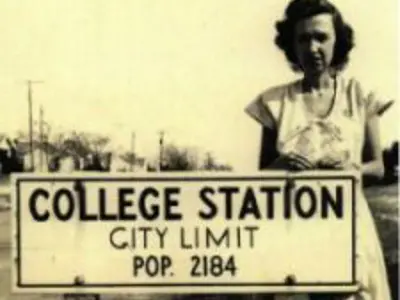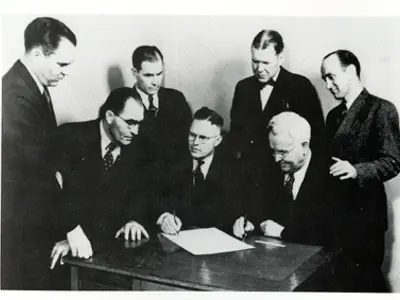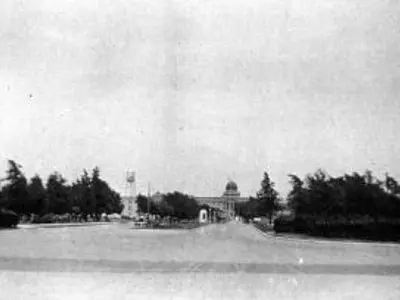Project HOLD historic online library database
Home of Texas A&M University by Anne Boykin
A City on the Right Track by Anne Boykin
City Stories
History and Heritage
The City of College Station is a young municipality, with its beginnings in the founding of Texas A&M College. Texas' first state institution of higher education, the college was inaugurated in 1876.
Because of the school's isolation, school administrators provided facilities for those who were associated with the college. The campus became the focal point of community development. The area was designated "College Station, Texas" by the Postal Service in 1877. The name was derived from the train station located to the west of the campus.
Growth of both the community and college influenced residents' desire to create a municipal government. The City of College Station was incorporated in 1938. The incorporation was a result of a petition by 23 men representing on- and off-campus interests to the board of directors of Texas A&M College. The board of directors had no objection to the annexation and suggested that a belt around the campus be included in the proposed city.
Citizens voted 217 to 39 on Oct. 19, 1938, to incorporate the City of College Station. The first city council meeting was held on Feb. 25, 1939, in the administration building on Texas A&M campus.
The council became interested in adopting a governmental structure similar to the council-manager form of government. At the time of incorporation, state law did not allow a general law city to hire a city manager. As a result, College Station employed a business manager until 1943 when state law was changed to permit general law cities to make use of the council-manager form of government. College Station become the first general law city in the State of Texas to employ a city manager. In 1952, once College Station's population exceeded 5,000, College Station voters approved a home rule charter that provided for the council-manager form of government.



